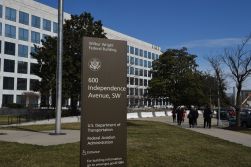National Archives to launch full version of modernized electronic records system

Agencies will have access to the full version of the National Archives and Records Administration’s modernized Electronic Records Archives (ERA 2.0) system to store digital records later this month.
Starting Sept. 18, users from across the federal government will be able to use the system’s function for scheduling records, according to a memo NARA Chief Records Officer Laurence Brewer published Tuesday.
Agencies have been able to use the system since June in a limited fashion to submit transfer requests for electronic files.
The ERA 2.0 system will contain the majority of the data the previous ERA system did, which includes record schedules and transfer requests. All previous existing user roles have also been migrated to the updated platform.
The modernized platform will provide “the current status of all pending agency actions in user dashboards,” rather than depending on a NARA appraisal archivist to send a separate, monthly report.
For agency users preparing to work in the new system, NARA has created ERA 2.0 training materials, along with an agency checklist for the launch.
Though the launch date nears, NARA’s journey to get to this point hasn’t been without challenges. During a Bi-Monthly Records and Information Discussion Group meeting on Aug. 15, Sam McClure, electronic records program director for NARA, noted that bugs have been present during the migration to the new system.
“I’m not pleased to speak towards data migration errors that we’re needing to correct,” McClure said, noting that roughly 2,000 of the 104,000 forms migrated over had been affected. “We’re working hard to address these…. The basic point is your work in the system is too important, your time is too important. We’ve got to get these errors fixed.”
McClure said some errors involved an incorrect status for forms after migration and that they needed to be cleaned out and re-migrated to arrive at the correct status.
Other forms were not able to be migrated at all.
“For various reasons related to our system infrastructure, some of these forms failed at the outset of their migration,” he said. “We’ve got to correct those issues, and get those into the system and get those into the correct statuses as well.”
The agency’s inspector general also took note of the challenges in migrating to ERA 2.0. The IG issued the results of an audit Friday of the system with six recommendations related to weaknesses.
While the report states that NARA is “making progress in the development and implementation of the ERA 2.0 system,” it says that the deployment has been delayed and not adequately planned.
“These weaknesses may result in continued delays in timelines resulting in unexpected ongoing maintenance costs for legacy systems and hinder the ability and effectiveness of the project team to assess the nature and risks related to the system being developed in a timely manner,” the report states.
The existing errors that NARA knows about have been reported on an updated list of errors.
“We update this on a fairly regular basis in response to updates we get from users from both agency and the NARA side of things,” McClure said. “And we’ll keep this updated both with known errors and soon with fixes that are coming.”
McClure said that the problems have “proven stubborn,” and that if the migration was an easy process, the forms would have been successful on the first try. During that August meeting, he said that the agency was working with a development vendor to take corrective actions.






